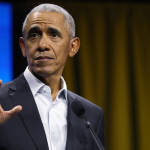Readers of a certain age will recall a sign seen long ago on the wall beside the cash registers in Shakey’s Pizza Parlors that declared: “We Have An Agreement With the Bank — We Don’t Cash Checks and They Don’t Make Pizzas.”
Two journalists working for Rolling Stone just published a story that demonstrates yet again that elite New York- and Washington-based media organizations would do well to heed similar advice when it comes to reporting on religious faith.
That’s not just my opinion, speaking as a veteran Washington journalist who also happens to have a deep faith in the Lord Jesus Christ as my savior. I know a great deal about both journalism and Christianity, and that’s why I cringed when I read “SCOTUS Justices ‘Prayed With’ Her — Then Cited Her Bosses to End Roe.”
But don’t take my word for it. Here’s New York Times executive editor Dean Baquet, who likely had no idea just how right he was when he told NPR in a Dec. 8, 2016, interview that this country’s elite media don’t understand why most Americans are or at least claim to be religious.
“I think that the New York–based, and Washington-based, too, probably, media powerhouses don’t quite get religion,” Baquet said. “We have a fabulous religion writer, but she’s all alone. We don’t get religion. We don’t get the role of religion in people’s lives. And I think we can do much, much better.”
When Baquet made that statement, the issue was mainly the inability of elite journalists to report accurately about Christianity. Today, accurate reporting remains a priority concern but with the added worry these days that inaccurate reporting can put lives in jeopardy, particularly when the Supreme Court is at the center of controversy.
That’s the case with the Rolling Stone piece, which purports to expose a profoundly serious conflict of interest problem among several of the conservative justices. In a word, the problem is they prayed, on the Supreme Court’s grounds, and even in their private chambers, with somebody connected to an organization that often argues cases before the nation’s most revered bench.
Let’s deal first with the most glaring of multiple inaccuracies about religion in the Rolling Stone piece, then address the utter irresponsibility involved in this dangerously inept apologue.
At the heart of the claimed cause of the problem is the authors’ description of prayer: “Prayer is a powerful communication tool in the evangelical tradition: The speaker assumes the mantle of the divine, and to disagree with an offered prayer is akin to sin.”
Now I’ve attended evangelical Baptist and Presbyterian churches all of my life and am even now slowly making my way online toward an MA in apologetics at one of the nation’s most respected evangelical seminaries.
And yet in all those years and studies, I have never, not once, heard an evangelical preacher, professor, or apologist describe the act of praying as “the mantle of the divine” being assumed by the person praying.
Nor have I ever heard it said or read a claim by an evangelical that disagreeing with “an offered prayer is akin to sin.” You can search all day through the 10 Commandments but you will never find one that says “Thou Shalt Not Disagree With an Offered Prayer.”
I mean, if disagreeing with something heard in a prayer is a mortal sin, then two-thirds of every Southern Baptist congregation that ever sang “Just As I am” may well now be burning in Hell.
But again, don’t take my word for it. Here’s how the Billy Graham Evangelistic Association defines prayer:
“Prayer is spiritual communication between man and God, a two-way relationship in which man should not only talk to God but also listen to Him. Prayer to God is like a child’s conversation with his father. It is natural for a child to ask his father for the things he needs.”
It required about 12 seconds of my time to search Google to find that definition of prayer from what is quite possibly the best-known evangelical organization in world history.
Clearly, the Rolling Stone authors’ conception of prayer bears zero relation to the truth. Had they bothered to ask any evangelical, they would have been told in no uncertain terms that only God Himself has that “mantle of the divine.”
And if these authors don’t even take the time to understand how we evangelicals understand the act of praying, why should anybody care that these same authors see a problem with Supreme Court justices doing it with somebody they’ve no doubt listened to during oral arguments over and over?
Well, that’s where the worry comes in that such ill-informed reporting could cause injury or death. There has already been one nutcase armed with a gun and a knife arrested after heading to the nation’s capital for the avowed purpose of murdering Justice Brett Kavanaugh.
Given the intensity of emotion and violence prompted by the Supreme Court’s Dobbs decision that ended Roe v Wade‘s bloody 49-year tenure — a decision the Rolling Stone article all but declares resulted from that problematic prayer with the justices — it comes as no surprise that security guards were needed for days afterward on the 2nd Street NE “Ministry Row” where multiple evangelical legal, political, and outreach groups maintain offices.
Much more remains to be said about this Rolling Stone piece, which is a thinly veiled attempt to smear pro-life evangelicals, so stay tuned.
Story cited here.
























